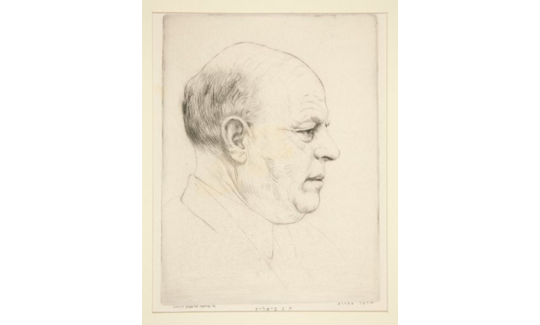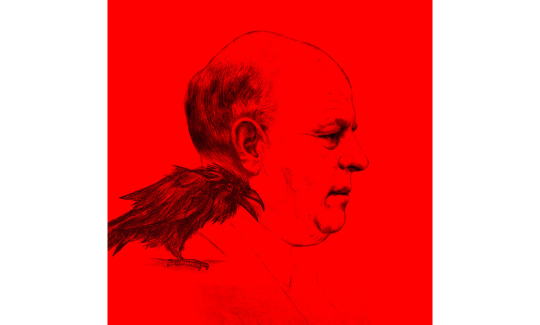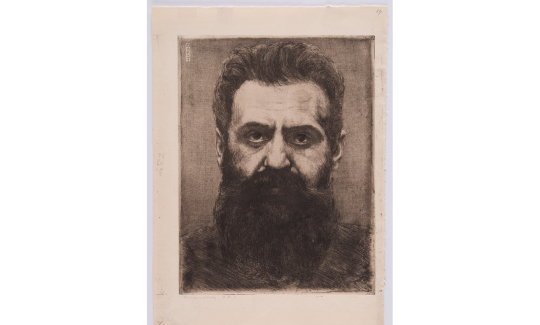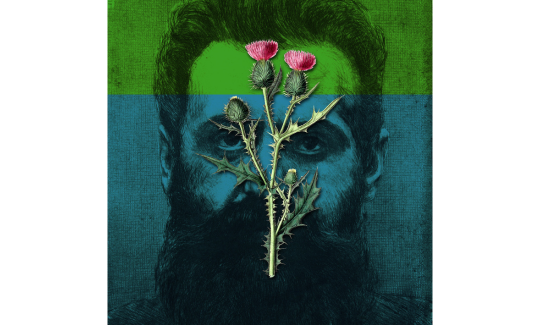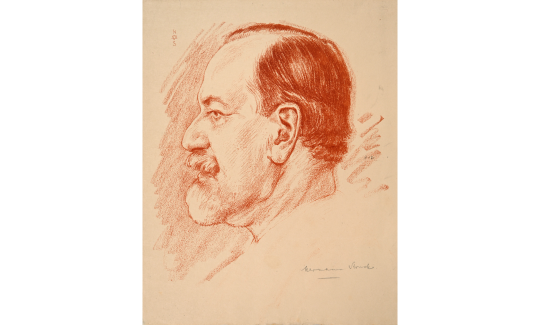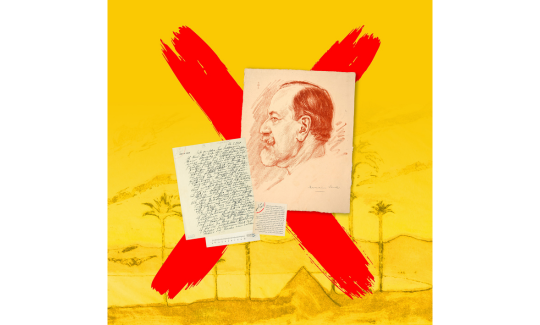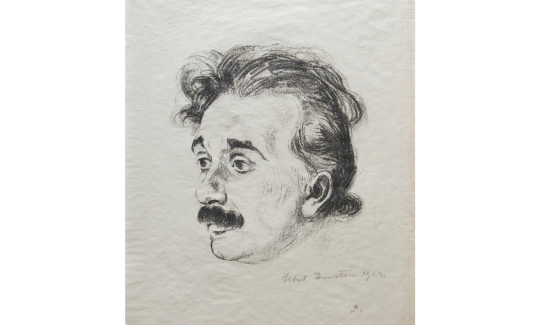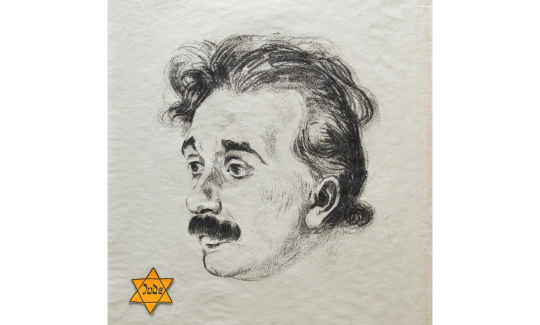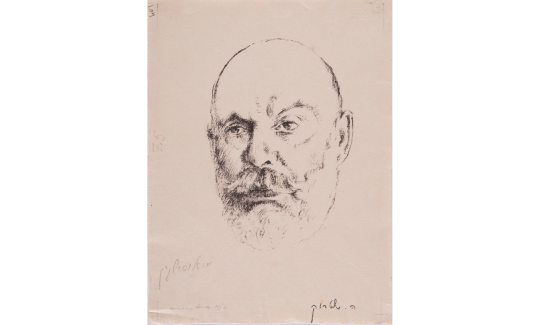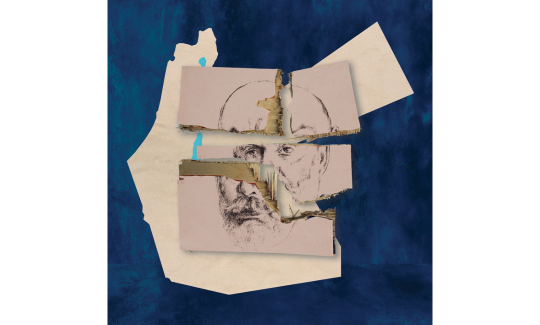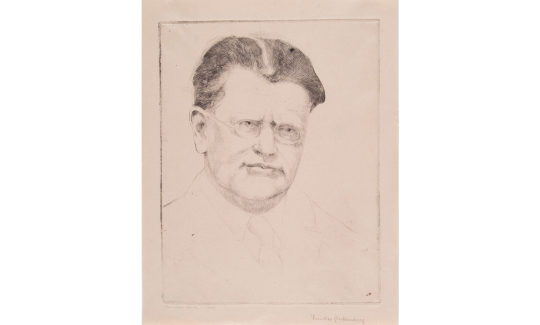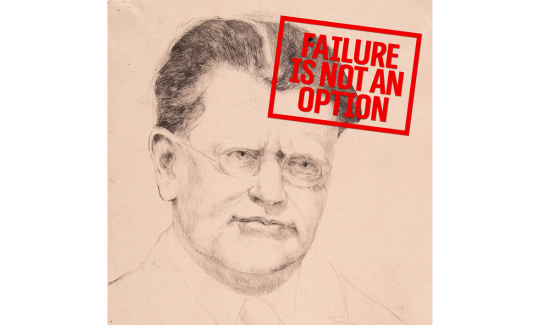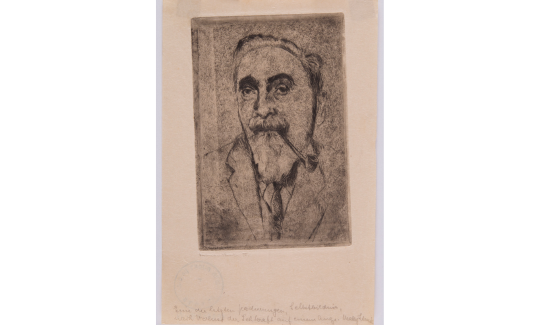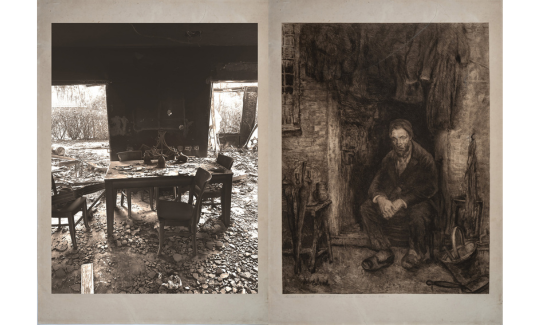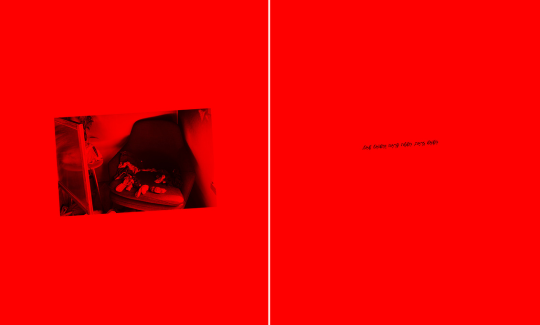Can you see its beauty
New Exhibition
Friday, 01.08.25, 10:00
Friday, 26.06.26
Curator:
Shirley Meshulem
More info:
04-6030800
Gil Goren < The Meeting > Hermann Struck
In 1926, Hermann Struck (b. Berlin 1876, d. Eretz Israel 1944) settled into his new home, designed by architect Alexander Baerwald, in the Hadar neighborhood of Haifa. The exhibition of artist Gil Goren - “Can you see its beauty” - opened a century later. The house, which had subsequently become a vibrant center of art, serves today as a museum and a center for the art of print.
The exhibition presents an intergenerational dialogue, spanning a hundred years, between Hermann Struck and Gil Goren, emphasizing a common perspective, according to which the power of visual imagery is not merely aesthetic, but political, social and educational as well.
The exhibition spreads over four rooms of the building, on the one hand portraits of Zionist leaders and Jewish intellectuals, such as Theodor Herzl, Menachem Ussishkin, Pinhas Rutenberg, Chaim Nachman Bialik, Albert Einstein and Sigmund Freud. Landscapes by Struck, on the other hand, selected from the Haifa Museums collection, are displayed alongside new works by Goren, using contemporary techniques. Goren offers a personal and singular interpretation of questions of identity, social and national values, and collective memory, in relation to Zionist principles and Jewish tradition, and in the context of Struck’s activity and works.
Six central works dominate the four exhibition rooms: “Six Portraits” (mixed media), “Can you see its beauty” (installation), “The Meeting” (video), “Gaza” (photography), “Europe” (tapestry), “Two Lies” (installation), and “Private and Collective Stamp Album” (installation). Each exhibition room differs in its content and characteristics, but visual motifs and images reappear throughout (portraits; Israeli plant life; JNF “blue boxes”), changing according to the context, and eliciting from the visitor a diversity of questions and interpretations.
At the heart of the exhibition is a video work titled “The Meeting,” which envisages a virtual encounter between Struck and Goren. The fascinating conversation that ensues reveals their commonality and their differences. Struck (whose Hebrew name was Chaim Aaron ben David) was a devout Jew, a Zionist activist, a man of the world, and among the most important print artists in Germany and Eretz Israel of the 20th century. He was a teacher and mentor for a generation of Jewish and Israeli artists, and influenced the development of local art in the genres of etching and lithography. He specialized in the “cold needle” technique, in which the line was the main characteristic of the work. As a “cultural agent’” and a political activist in the religious Hamizrachi Zionist movement, Struck saw art as a goal and a mission. For this reason, he chose to specialize in printmaking techniques, which served as a practical means of duplication and dissemination of Jewish culture and Zionist values – to which he was devoted – among communities in Eretz Israel and abroad.
Goren, on the other hand, is a secular artist, a citizen of the world whose work enjoys a global exposure. He sees his art as a calling, and uses a variety of techniques – painting, weaving, photography, printmaking – as the means of spreading his ideas and values to a broad audience. His artistic language is characterized by bold colors, with thought-provoking visuals and captions, and the integration of a variety of materials and techniques. Like Struck, Goren was imbued with Zionist values and a love of the land, and his activity in the sphere of advertising and branding left its mark on the social and political discourse in Israel. His artwork in the exhibition is of a critical nature with a message to deliver.
*“Can you see its beauty” - the title of the exhibition and of an installation - is taken from the poem “There are Flowers” by Natan Yonatan, with permission and by courtesy of the poet’s heirs.
*The installation “Two Lies” is based on the song “Two Lies” by Yaakov Rotblit, with permission of the songwriter.

